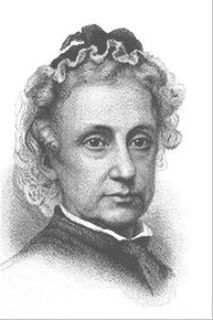A Quote by Clarissa Pinkola Estes
When women hear those words, an old, old memory is stirred and brought back to life. The memory is of our absolute, undeniable, and irrevocable kinship with the wild feminine, a relationship which may have become ghostly from neglect, buried by over-domestication, outlawed by the surrounding culture, or no longer understood anymore. We may have forgotten her names, we may not answer when she calls ours, but in our bones we know her, we yearn toward her, we know she belongs to us and we to her.
Related Quotes
I think the relationship [in Aquarius] with her nephew shows that she's not nostalgic. She just wants to preserve what is important to her - her records, her books, even some furniture. She doesn't want to leave that house because it is her home. That is where her kids were born. After moving so much in my life, I was touched by Clara's need to stay in that apartment. I love her life, and that may be why I connected to her so strongly. We are the most alike when we are fighting for our rights.
I'm looking for a writer who doesn't know where the sentence is leading her; a writer who starts with her obsessions and whose heart is bursting with love, a writer sly enough to give the slip to her secret police, the ones who know her so well, the ones with the power to accuse and condemn in the blink of an eye. It's all right that she doesn't know what she's thinking until she writes it, as if the words already exist somewhere and draw her to them. She may not know how she got there, but she knows when she's arrived.
She lay on her back and walked her fingers down her ribs, skipped them over her abdomen, and landed on her pelvic bones. She tapped them with her Knuckles. [. . .] I can hear my bones, she thought. Her fingers moved up from her pelvic bones to her waist. The elastic of her underpants barely touched the center of her abdomen. The bridge is almost finished, she thought. The elastic hung loosely around each thigh. More progress. She put her knees together and raised them in the air. No matter how tightly she pressed them together, her thighs did not touch.
As he was about to leave, she said, "Murtagh." He paused and turned to regard her. She hesitated for a moment, then mustered her courage and said, "Why?" She though he understood her meaning: Why her? Why save her, and now why try to rescue her? She had guessed at the answer, but she wanted to hear him say it. He stared at her for the longest while, and then, in a low, hard voice, he said, "You know why.
She sat leaning back in her chair, looking ahead, knowing that he was as aware of her as she was of him. She found pleasure in the special self-consciousness it gave her. When she crossed her legs, when she leaned on her arm against the window sill, when she brushed her hair off her forehead - every movement of her body was underscored by a feeling the unadmitted words for which were: Is he seeing it?
Ariel may look a lot like Barbie, and her adventure may be limited to romance and over with the wedding bells, but unlike, say, Cinderella or Sleeping Beauty, she's active, brave and determined, the heroine of her own life. She even rescues the prince. And that makes her a rare fish, indeed, in the world of preschool culture.
And one of the things that I learned was you can't generalise at all about a woman in a veil. You can't think you know her story, because she will confound you over and over again. She may be an engineer or a diplomat or a doctor. Or she may be an unbelievable babe with bleached hair down to her waist.
The Goddess is the Encircler, the Ground of Being; the God is That-Which-Is-Brought-Forth, her mirror image, her other pole. She is the earth; He is the grain. She is the all encompassing sky; He is the sun, her fireball. She is the Wheel; He is the traveler. He is the sacrifice of life to death that life may go on. She is the Mother and Destroyer; He is all that is born and is destroyed.
Ever argue with a female and, in the middle of the argument, you no longer feel safe because of her actions? She may start pacing back and forth real fast, breathing out her nose. You know what my girl do? When she get mad, she start talking in the third person. That's scary as hell because that's her way of telling me that from this point on, she is not responsible for none of her actions.
What happens when she's not my memory anymore? What happens when she's not around to tell me about his belt leaving scars across my two-year-old brother's face or when he whacked her so hard that she lost her hearing for a week? Who'll be my memory?" Santangelo doesn't miss a beat. "I will. Ring me." "Same," Raffy says. I look at him. I can't even speak because if I do I know I'll cry but I smile and he knows what I'm thinking.
He leaned her back against the tub, setting her head on the edge, then washed her shoulders. "I know I left you once." She opened her mouth, wanting to say it didn't matter, it was forgotten. But it wasn't. "I know I hurt you." Again, she wanted to argue. But she couldn't. "I know I said I won't leave you again, but I also know that's not enough, and that the only way you're going to trust that I won't leave is if I don't". He slid the cloth over her arms. "If this ends, Hope, it won't be me that ends it. I think you know that.
The universal nature has no external space; but the wondrous part of her art is that though she has circumscribed herself, everything which is within her which appears to decay and to grow old and to be useless she changes into herself, and again makes other new things from these very same, so that she requires neither substance from without nor wants a place into which she may cast that which decays. She is content then with her own space, and her own matter, and her own art.
In her heart she is a mourner for those who have not survived. In her soul she is a warrior for those who are now as she was then. In her life she is both celebrant and proof of women's capacity and will to survive, to become, to act, to change self and society. And each year she is stronger and there are more of her.







































